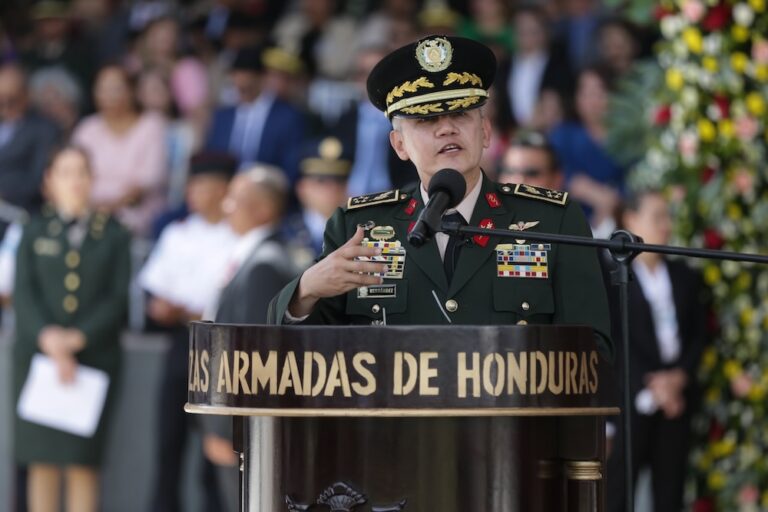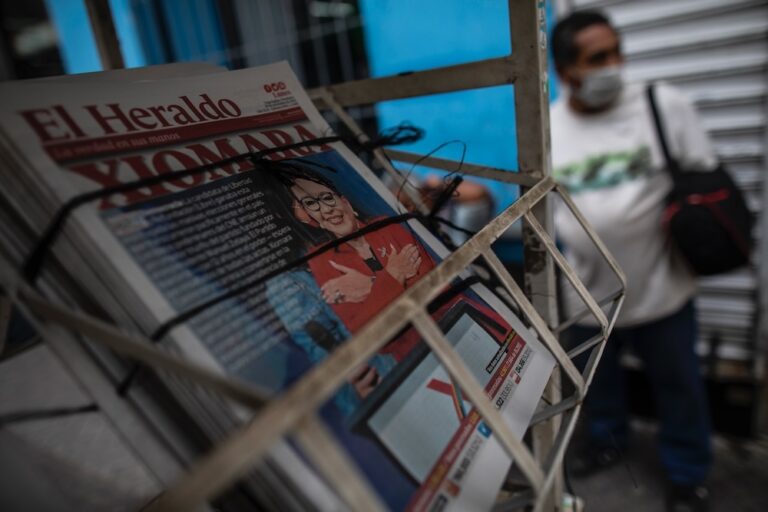(PFC/IFEX) – A group of students and teachers from the Vicente Cáceres Central Institute, the main public high school in Honduras, apologised to Eduardo Irías, a camera operator for Canal 66 television station, for the attack he suffered during a student protest. On the afternoon of 8 October 2003, the Vicente Cáceres students held a […]
(PFC/IFEX) – A group of students and teachers from the Vicente Cáceres Central Institute, the main public high school in Honduras, apologised to Eduardo Irías, a camera operator for Canal 66 television station, for the attack he suffered during a student protest.
On the afternoon of 8 October 2003, the Vicente Cáceres students held a demonstration at the Congress to protest recent Education Ministry decisions. According to the students, the ministry’s actions are the first step toward privatisation of education in Honduras. The authorities deny this, claiming the moves are aimed at improving the quality of education.
Irías was covering the demonstration and the confrontation between the students and police, together with Canal 66 journalist Alex Espinal, when he was trapped by a group of students who began to assault him and damage his equipment, valued at US$50,000. Other journalists tried to assist Irías.
Espinal, who was not hurt, urged his colleagues to condemn the incident, which he called a “flagrant violation of freedom of expression.”
On 9 October, Vicente Cáceres authorities and the Student Council publicly apologised to Irías, Espinal and the press in general. They promised to pay for the damaged equipment and launch an investigation to identify those responsible.
According to Student Council President Erlinda Madrid, the aim of the protest was to encourage the education authorities to reconsider their decision and to obtain support from other schools. With respect to the attack on the journalist, she said, “We regret the incident, but the confrontation was initiated by the police. The police hurt one of our colleagues, they pointed a gun at his head. And they hit me on the shoulder. In the case of the camera operator, you have to ask yourself what he did to the protesters, since the press is always treating students of this school as if they were criminals,” she said.
This is the second time in the last three years that a journalist or media outlet has been targeted by members of the public. In 2001, members of the National Autonomous University of Honduras (Universidad Nacional Autónoma de Honduras) Union tried to take over the studios of a radio station in the capital to broadcast information that was reportedly false.
For further information on the case, see: http://probidad.org/honduras/libexp/2003/030.html
This alert has been prepared by PFC with information from the Committee for Free Expression (Comité por la Libre Expresión, C-Libre).


